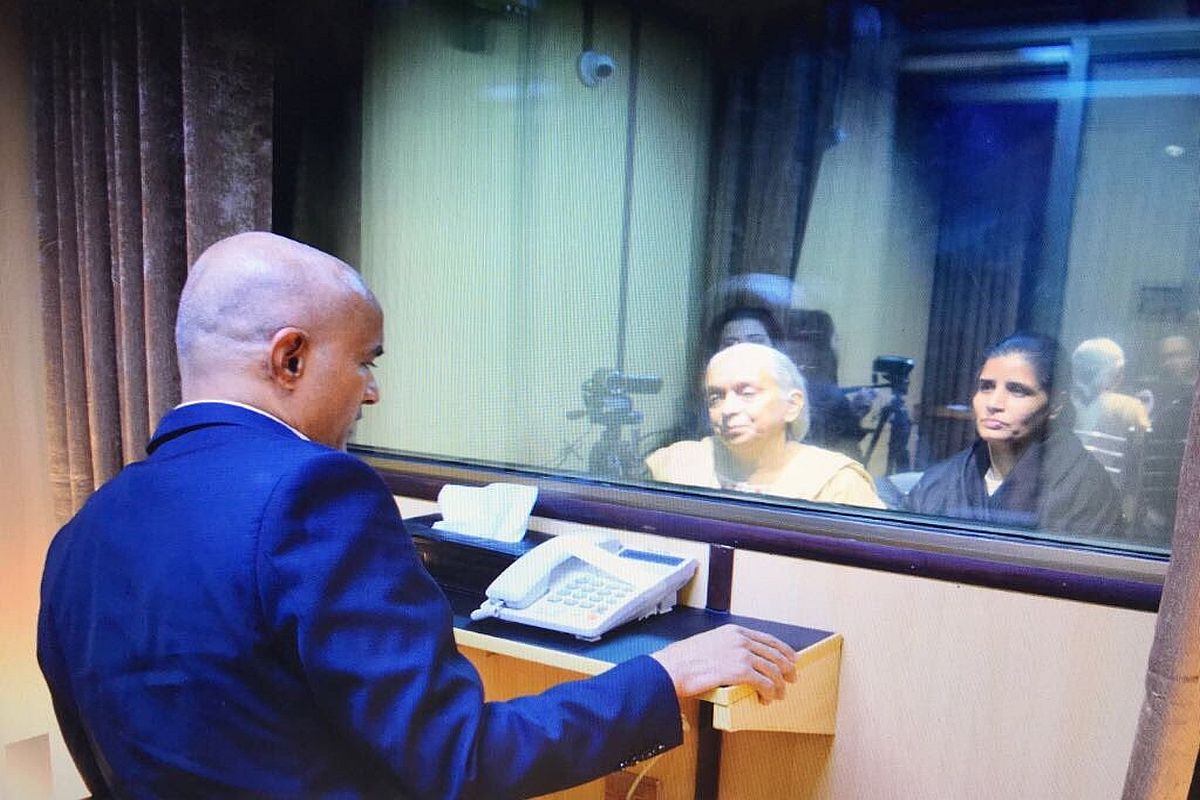In a huge victory for India, the International Court of Justice (ICJ) on Wednesday ordered Pakistan not to execute Kulbhushan Jadhav and directed “effective review and reconsideration” of his conviction and the sentence awarded to him by a military court.
The world court, while rejecting all objections raised by Pakistan, directed it to grant consular access to Jadhav “without further delay”, while holding that it had “breached” the Vienna Convention in this regard by denying him this right.
Advertisement
Jadhav, a former Indian Navy officer, was on a death row in Pakistan on charges of spying for RAW.
The ICJ gave a detailed verdict on Wednesday, rejecting all the objections of Pakistan, including one unanimously on the admissibility of the case and also the claims by Islamabad that India had not provided the actual nationality of Jadhav.
In the judgement, the ICJ said that it was satisfied that Jadhav was an Indian national and that the fact had been acknowledged by both Pakistan and India.
The verdict was 15 to one in favour of India – the lone dissenter being from Pakistan. In a major setback for Pakistan in the high-profile verdict, the Chinese jurist and Vice President of the world court, Xue Hanqin, also backed the majority judgement.
It ordered, “a continued stay of execution” on Kulbhushan Jadhav, saying it “constitutes an indispensable condition for the effective review and reconsideration of the conviction and sentence” of the accused.
It said it “finds that the appropriate reparation in this case consists in the obligation of the Islamic Republic of Pakistan to provide, by the means of its own choosing, effective review and reconsideration of the conviction and sentence of Mr. Kulbhushan Sudhir Jadhav, so as to ensure that full weight is given to the effect of the violation of the rights set forth” in the Vienna Convention on consular access.
The court, however, refused to annul Jadhav’s death sentence or order his release and safe passage to India.
Prime Minister Narendra Modi hailed the verdict saying that “truth and justice have prevailed”.
“Truth and justice have prevailed. Congratulations to the ICJ for a verdict based on extensive study of facts. I am sure Kulbhushan Jadhav will get justice. Our Government will always work for the safety and welfare of every Indian,” PM Modi tweeted.
Soon after the verdict, foreign ministry spokesperson Raveesh Kumar said, “We note that the Court has directed that Pakistan is under an obligation to inform Jadhav without further delay of his rights and to provide Indian consular officers access to him…We expect Pakistan to implement the directive immediately.”
Harish Salve, who was India’s advocate at the ICJ, said if the trial by Pakistan isn’t fair, India can always go back to the world court.
“If the ICJ verdict is disobeyed, we can take measures including sanctions. I’m sure Pakistan won’t go that way. At least I hope so… If the trial by Pakistan isn’t fair, we can go back to ICJ.”
Pakistan claims it arrested Jadhav on 3 March 2016 when he attempted to cross over into the country from the Saravan border in Iran in pursuit of targets set by his RAW handlers. New Delhi has rubbished Pakistan’s claim, asserting that the Indian national was abducted by Pakistani agencies from Iran where he was running a business.
Pakistan subsequently conducted a farcical trial of Jadhav in a military court and sentenced him to death. Pakistan Army chief, Gen Qamar Javed Bajwa, had endorsed the death penalty for Jadhav in April 2017.
Pakistan also refused to give consular access to the Indian prisoner despite repeated requests by New Delhi. In June 2017, Jadhav filed a mercy petition against the death penalty. However, it was rejected by Pakistan, forcing India to approach the ICJ. India sought annulment of Jadhav’s execution and his immediate release by Pakistan. The court, during its hearings, asked Pakistan to stay his execution till it delivers its final verdict.
The Kulbhushan Jadhav case is the fourth time the International Court of Justice would be adjudicating a case involving India and Pakistan. In the three previous cases, the ICJ has been careful in not passing judgments that could be seen as one-sided.











